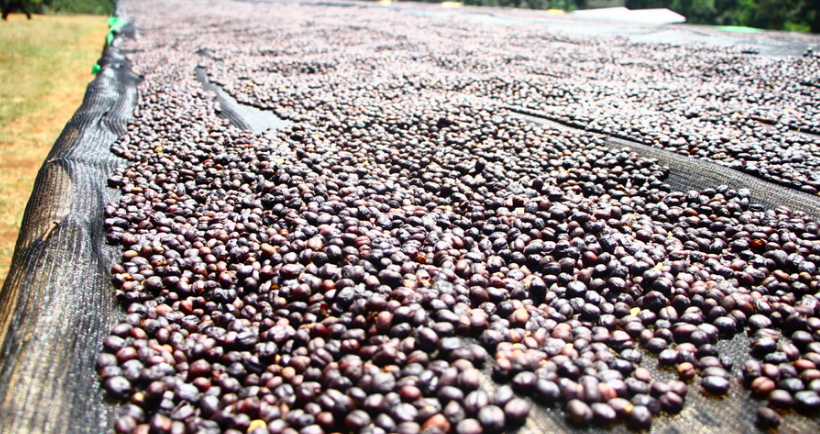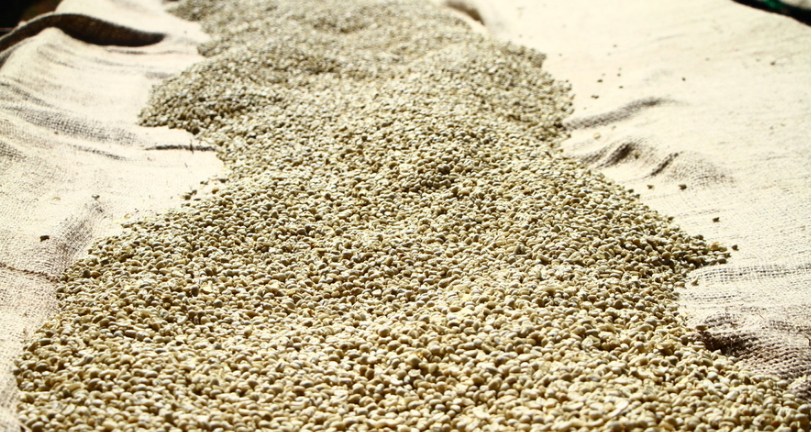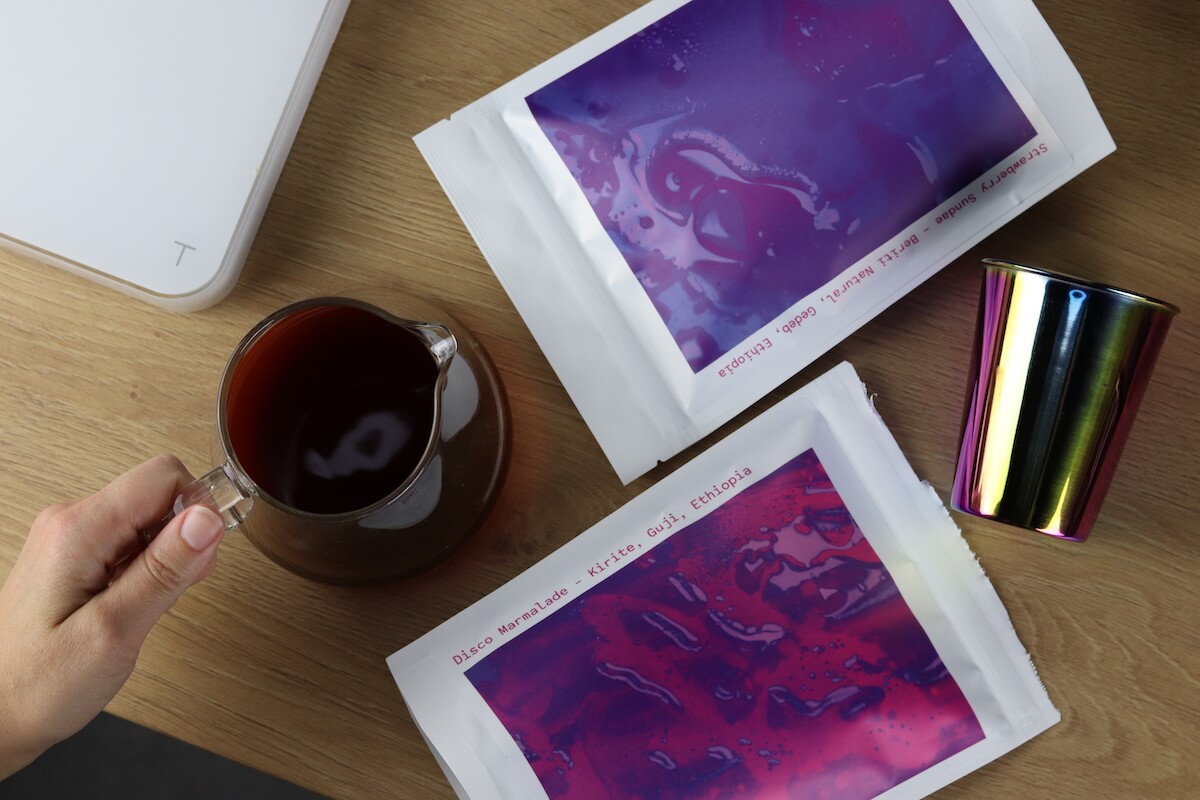Our two latest releases in October are from Guji (Kirite aka Disco Marmalade) and Gedeb (Beriti aka Strawberry Sundae) respectively, & have something pretty neat in common – They are both lots from outgrower communities that work with METAD, who have a remarkable history as a company, producer and exporter in Ethiopia.
History of METAD
In 1934 Ethiopia, a young woman named Muluemebet, with equal parts fierceness and confidence overcame the odds and became Africa’s first female pilot. She flew an aircraft called the Tiger Moth a number of times a week over Addis Ababa and was determined to complete her pilot training and start a career. Her effort were almost unbelievable at a time when it was nearly impossible as a woman to get your drivers license.
In a twist of fate, Italian troops invaded Ethiopia in 1936, forcing Muluemebet into hiding (she was on their hit list). Trading in your dream for the domestic life seems a bit anti-climactic, but what happens next involves moving forward to today, this coffee and a continued legacy.
Ethiopian government awarded Muluemebet land as recognition for her efforts during the war and decades later Aman Adinew, her grandson, is entrusted with this same land, known today as Hambela Estate.
Aman, and his brothers Tariku and Michael manage Hambela Estate with the same drive that Muluemebet showed as she learned to fly all those years ago. They not only employ the local community complete with healthcare, but also provide agronomy assistance for smallholders (both Kirite and Beriti lots in your box this month are a part of this outgrowers program). The quality of the lots produced under the guidance of Aman and his team are consistently gorgeous and vibrant.
METAD’s Outgrowers Initiative
In addition to Hambela, their estate farm, the Adinew family also have programs where they will buy coffee fruit from outgrower communities and process the lots.
Both Kirite (from Guji) and Beriti (Gedeb) are both communities of coffee Outgrowers: Small private farms that are too small to be able to realistically process their coffee themselves. Kirite has varieties indigenous to the area of Guji and Beriti has varieties that are indigenous to Gedeb/ Yirgacheffe. Previously, both these communities didn’t have as many points of access to the international market – Especially since typical private washing stations (who buy coffee fruit to process on their own equipment to resell/ export) don’t give a second payment. This is a payment that happens once the final export price of a coffee is known, and growers receive a sort of dividend. METAD/ Hambela estate is a rarity since they pay out that second payment to their outgrower partners.
Another nice thing about METAD’s outgrowers program is they invest in agronomic training and support. This makes a huge difference in supporting these talented and dedicated folks. Outgrowers are not obligated to sell coffee fruit only to METAD, but most tend to since there is an encouraging premium.
Facing the Reality of Climate Change
This year METAD has installed mechanical driers in addition to the existing raised mesh beds. The effects of climate change are indeed here, and for coffee growing and production that means no longer knowing for sure that rain will happen at a certain time and not others. We’ve had friends lose upwards of 30% of their harvest this year because rains came fast, hard, and at the totally wrong time – Not great, but very much on brand for 2020. Rains happening when you’re supposed to be drying coffee is not great either. So adapt we must – The Adinew family are pretty great at that.
Washed process coffees are what we all know to be “regular coffee” – A process with a solid procedure and intention reveal the remarkably varied flavours brought to the forefront for each variety, landrace, cultivar, or hybrid.
This way of processing coffee in Ethiopia is only a few decades old. On a philosophical level, this could call into question the very definition of coffee as we typically enjoy it. Ethiopians have been enjoying this fruit as early as the 9th century, and since the start, it’s always been dried first as whole fruit. Coffees processed in a washed format, especially in Yirgacheffe as well as Guji, has been going on since around the 1960’s. Something to think about as we all enjoy delicate flavours like rose, lavender, citrus and more interesting things like lemongrass and ginger in a lot of coffees coming from the south of the country.
One detail around washed coffees isn’t often talked about though – Water usage and environmental impact. Washed processing typically uses a LOT of water, to the tune of 10,000 m³ per ton of green coffee (thats 4 olympic sized swimming pools worth!). When you start to think through what a tonne means for coffee (19.2 tonnes is a container of coffee, which has 320 x 60kg bags) it starts to make a pretty damn solid case for natural coffee, or at least focusing on washed methods that significantly reduce the water usage. Fortunately, some systems (like a Penagos wet mill which this lot of Kirite uses) does a good job cutting that amount of water down substantially, while maintaining the quality desired. With a more compact system like a Penagos wet mill, water consumption is lowered by 80% compared to more traditional washed processing methods.

With melted strawberry sundae vibes, this lactic sweet naturally processed landrace lot starts as fruit grown in the forest with smallholders associated with the Beriti community stewarding it in Gedeb, Ethiopia. METAD then processes the fruit intact and dries these little purple orbs on raised beds for 6-8 weeks.

With bright purple jam, sweet herbs & violet floral complexity, this washed processed landrace lot is grown by smallholders associated with the Kirite community in Guji, Ethiopia. METAD’s Hambela estate processes the fruit by depulping, and fermenting the remaining bits of fruit off the seeds by submerging in water tanks, visually reminiscent of a vat of sparkling kombucha ✨
